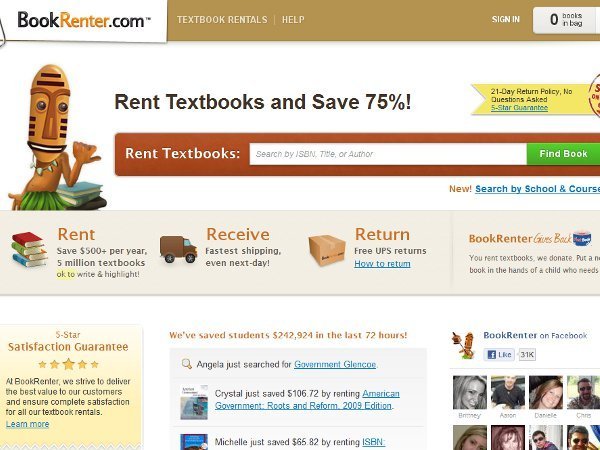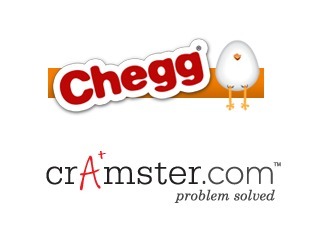 Renting out textbooks is so 2009. Correction: only renting out textbooks is so 2009.
Renting out textbooks is so 2009. Correction: only renting out textbooks is so 2009.
In an effort to maintain its leadership position amidst rising copycat services, Chegg is announcing changes to its site Wednesday that nudge the service toward a newer, more ambitious goal than just renting textbooks: it wants to be a fully-featured educational platform.
What that means for Chegg users are new course planning and homework helper tools. No one should be surprised, since two acquisitions made by Chegg in 2010 foreshadowed today’s changes.
The first came in mid-August, when Chegg bought CourseRank, a site for rating previously taken classes and professors as well as for planning future courses. To that end, CourseRank shows students grade distributions for classes and features an in-house schedule. Right now, the service supports 600 schools, though Chegg hopes to boost that number to 1000 in time for the fall semester.
The other deal went down in early December, when Chegg acquired homework help site called Cramster, which offers access to textbook solutions (even and odd) and peer-produced expert answers. Students are encouraged to answer each other’s questions both out of charity and for Karma Points, which can be cashed in for rewards.
Indicative of the six months spent by the CourseRank team at the Chegg offices, the relaunched Chegg site offers greater integration with CourseRank than with Cramster. Full integration with both is forthcoming and all the features are powered by Facebook’s instant personalization tools.
Of course, Chegg will continue offering its baseline textbook rental service and it will still plant a tree every time you rent. (Over four million trees have been planted so far.) Chegg last raised a $75 million funding round in September 2010, in the same year that the company was estimated to be making $130 million in revenue.
Don’t think, however, that this is the last time that Chegg will reposition itself in the education market. Read up on the just-announced funding news for Inkling, a digital textbook startup, and you’ll see that new technologies have made the education industry as volatile as the music and film industries. With Borders filing for bankruptcy and major publishers injecting large amounts of cash in ebook startups, you can’t help but realize where the industry is headed.
“I think about it a lot,” said Gibson Biddle, SVP of Product at Chegg, when I asked him what he thought about the industry shift from physical books to digital. Biddle had previously served as VP of Product Management at Netflix, so the physical-to-digital sea change is a very familiar concept to him. For Netflix, the shift came last November, when the company began offering a streaming-only subscription plan and hiked the prices for physical DVD delivery plans.
“It was a big question at Netflix: when does the business move from DVDs to streaming? [For textbooks], the transition will happen in a meaningful way over the next five years and we will be engaged in [digital] in the next couple years.”
As sure as we were that Chegg had bigger ambitions with its 2010 acquisitions, you can bet that it’s looking forward to breaking into digital even further down the line.



















